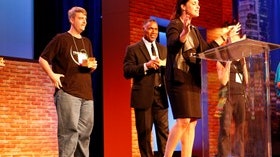Homepage
•
Learning Library
•
Blog
•
Soledad O'Brien: Tech is the next civil rights battleground
Expand breadcrumbs
Expand breadcrumbs
- Learning Library
- Blog
- Soledad O'Brien: Tech is the next civil rights battleground
- Homepage
- •
- Learning Library
- •
- Blog
- •
- Soledad O'Brien: Tech is the next civil rights battleground
Soledad O'Brien: Tech is the next civil rights battleground
By Team ISTE
June 28, 2015








